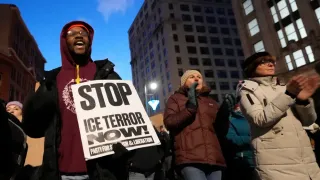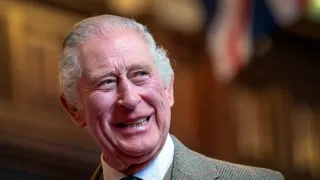December 20, 2017
Journalist and Boyfriend Killed in Massive Hotel Fire in Scotland
READ TIME: 2 MIN.
A gay couple were victims of a fire that raged through a luxury five-star hotel on the shores of Loch Lomond, Scotland this week, the BBC reports.
The men have been identified as freelance travel writer Simon Midgley, 32, and his boyfriend Richard Dyson, 38, a TV producer, both believed to be from London. The couple was staying at the Cameron House Hotel when the fire broke out Monday morning.
The BBC reports police have not confirmed the identities of anyone who died but the news outlet points to relatives who paid tribute to the men on social media.
More than 200 guests were evacuated from the building when the fire broke out. Officials are currently investigating what caused the fire.
"The damage to the building is pretty extensive, especially the upper floors," BBC Scotland reporter Andrew Black, who visited the site, said. "There's a smell of burning wood and we could hear a fire alarm from part of the building still going off."
According to Instagram posts cited by the BBC, it appears as though the men were on winter break in Scotland. One post from Midgley's account showed pictures of the hotel. He captioned one photo "Home for the weekend."
Midgley's sister posted a photo of her brother and his partner on Facebook and another relative wrote, "I'm beyond heartbroken."
Midgley wrote for the London Evening Standard and ran his own PR company, according to his Facebook page.
Beck Holmes, a university friend of Dyson, spoke to The Daily Mail to remember him.
"He was an amazing man, a fantastic friend and he said to me very, very often how he had met the man of his dreams and was living in bliss," she said. "I was so happy for them and it's an utter, utter tragedy that this has happened."






